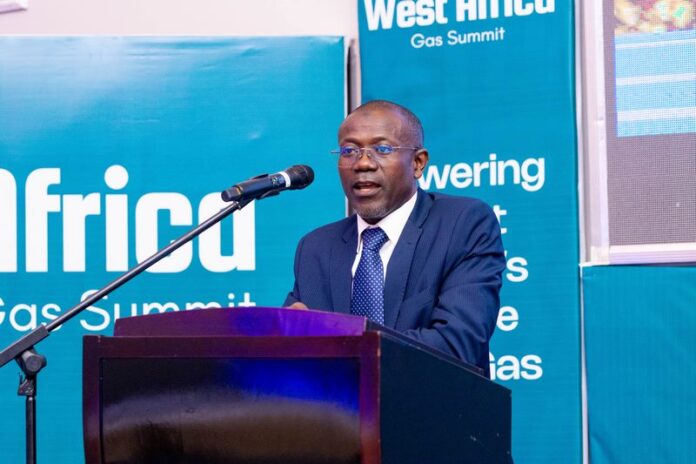The Ghana National Petroleum Corporation (GNPC) has reaffirmed its commitment to energy transformation and regional integration with a forward-looking gas strategy unveiled at the 2025 West Africa Gas Summit in Accra.
Presenting on the theme “GNPC’s Vision and Role in the Gas Sector,” the Deputy Chief Executive Officer for Finance, Administration and Commerce, Mr. Hamis Ussif, outlined the Corporation’s evolving role in Ghana’s gas industry and its broader vision for the region’s energy future.
He issued a resounding call for strategic partnerships and infrastructure investment.
“GNPC sees gas not just as a fuel, but as the bridge to a more resilient, inclusive, and prosperous energy future for Ghana and the sub-region,” Mr. Ussif stated. “Natural gas is the unsung hero of our energy narrative—quietly powering industries, homes, and opportunities.”
He urged policymakers and energy actors in West Africa to recognise the transformative potential of natural gas for energy security and economic development.
A Vision Anchored on Infrastructure, Innovation, and Inclusion
Mr. Ussif reaffirmed GNPC’s ambition to become a globally respected oil and gas company whose operations directly improve the quality of life for Ghanaians. He noted that GNPC’s expanding gas portfolio is critical not only for meeting domestic energy needs but also for spurring industrialisation, reducing electricity tariffs, and contributing to Ghana’s goal of becoming the energy hub of West Africa.
Currently, Ghana’s natural gas supply averages 425 million standard cubic feet per day (MMscfd), sourced from the Jubilee and TEN fields, the Sankofa-Gye Nyame field, and imports from Nigeria. This supply powers approximately 70% of the country’s electricity generation. However, growing demand continues to widen the supply gap—both for domestic use and regional trade.
To address this, GNPC is collaborating with partners to scale up local production. By July 2025, output from the Jubilee field is expected to rise from 100MMscfd to 140MMscfd, while the Sankofa field will increase from 245MMscfd to 270MMscfd. However, these efforts will not fully close the gap, prompting GNPC to operationalise an LNG import terminal by 2026. Longer-term plans include intensified exploration in both offshore areas and the onshore Voltaian Basin.
Strategic Investments Powering Ghana’s Energy Sector
Mr. Ussif highlighted GNPC’s role as a key enabler in the gas value chain, citing transformative investments like the $190 million Takoradi-Tema Interconnection Project (TTIP), which enabled reverse gas flow along the West African Gas Pipeline and improved energy security.
GNPC also provided critical financial guarantees for the Sankofa Gas Project and supported the Atuabo Gas Processing Plant. In the power sector, the Corporation facilitated the deployment and relocation of the Karpowership to Sekondi to make use of indigenous gas.
Additionally, GNPC funded the 110-kilometre Prestea-Kumasi gas pipeline, laying the foundation for a third power generation enclave in Ghana’s middle belt, where two more power plants are expected to be completed by year-end.
Strengthening Private Sector Collaboration
Emphasising the importance of innovation and capacity expansion, Mr. Ussif invited private sector players to partner with GNPC in shaping Ghana’s gas future. He cited upcoming projects including expansion of supply from Jubilee, TEN, and Sankofa; construction of the Tema City Gate; and development of a Compressed Natural Gas (CNG) network and pipeline system for the Tema industrial zone.
“GNPC is open for partnership—with those who share our commitment to sustainable growth, innovation, and regional development,” he said.
A Regional Voice in the Energy Transition
Reiterating GNPC’s commitment to Ghana’s decarbonisation agenda and a just energy transition, Mr. Ussif affirmed that the Corporation remains aligned with national policy and will continue supporting inclusive, equitable, and environmentally responsible development.
He concluded with a call for regional collaboration and shared purpose:
“Let us, together, unlock the immense potential of natural gas and light the way for millions across West Africa.”



